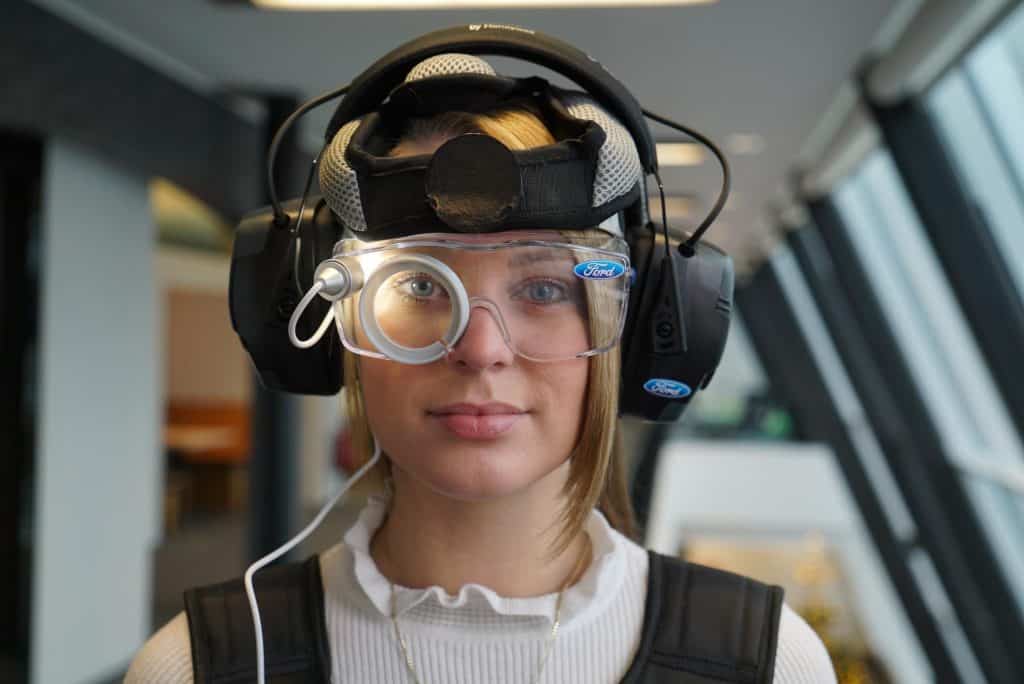 Drunk driving (DUI) is now one of society’s biggest taboos – but driving the morning after can be just as dangerous.
Drunk driving (DUI) is now one of society’s biggest taboos – but driving the morning after can be just as dangerous.
With many people drinking more than usual over the festive period, it is a peak time for drivers to take a risk that could be fatal – both for themselves and other road users.
In Europe, research shows alcohol is a factor in one in six road accident fatalities *. And in the UK, one in 10 drink driving arrests take place between 06:00 and 08:00 **. Ford commissioned the ‘Hangover Suit’ from the renowned Meyer‑Hentschel Institute, in Germany, to highlight the dangers.
Weighing more than 17 kg, the ‘Hangover Suit’ consists of a special vest, wrist and ankle weights, cap and goggles, and headphones. Together, these simulate the classic hangover symptoms of fatigue, dizziness, a throbbing head and difficulty concentrating.
“There is a lot of social pressure to prevent those who may be tempted to drink drive after a night out. But many times those who drive the morning after are travelling alone,” said Ford Driving Skills for Life Manager Jim Graham *. “The ‘Hangover Suit’ shows how debilitating a hangover can be and the risk that driving in that condition can present to all road users.”
Even when drivers are no longer over the legal alcohol limit they still present a risk that can be as high as for those who are drink driving, with drivers likely to be sleep deprived and their reaction times are affected. ****
Through its Ford Driving Skills for Life programme, Ford offers free training for young drivers. By the end of 2016, this programme will have trained more than 20,000 drivers across 13 countries in Europe. Previously, for the programme, Ford worked with the Meyer Hentschel Institute to produce a tailor-made “Drink Driving Suit” and “Drug Driving Suit” – as featured recently on “Jay Leno’s Garage”. The “Hangover Suit” presented different challenges.
“We did a lot of research – including analysing our own abilities after an evening of social drinking,” said Gundolf Meyer-Hentschel, CEO of the Meyer-Hentschel Institute. “For the ‘Hangover Suit’ we have introduced the headphones that replicate the particular increased sensitivity to sound as well as the typical acoustic experiences of a migraine. In addition, a weighted headset, together with the goggles, simulates dizziness and a blinding headache.”
Among those who have already experienced the suit first hand is Dr Richard Stephens, a Senior Lecturer in Psychology at Keele University, in the UK, and an alcohol researcher with expertise in hangover.
“People often do not realize the degree to which a hangover impacts your core ability to do anything,” said Prof. Stephens. “The ‘Hangover Suit’ brings that point home loud and clear.”